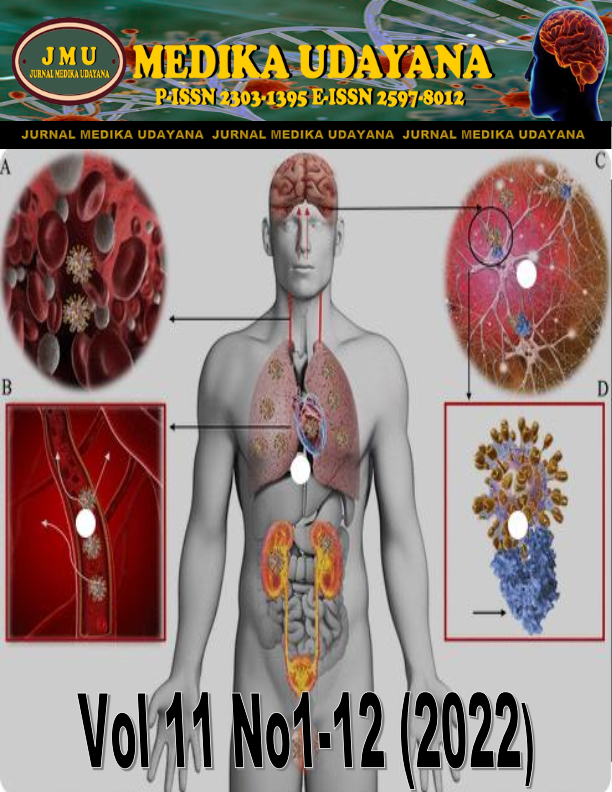RELATIONSHIP OF OVERWEIGHT-OBESITY WITH ACADEMIC ACHIEVEMENT IN STUDENT OF SENIOR HIGH SCHOOL NUMBER 1 TABANAN, BALI
Abstract
Overweight-obesity is a condition that results from the accumulation of excess body fat and can affect cognitive function in adolescents, thus having an impact on academic achievement. The aim of this study was to see the relationship between overweight-obesity and academic achievement of student at SMA N 1 Tabanan. The research design of this study was analytic observational cross-sectional. The data were taken by consecutive sampling method through distributing questionnaires in the form of google form. The subject of this study were students of class XI of SMA N 1 Tabanan. Bivariate and multivariate tests were used to analyze the data in this study. The results of the bivariate analysis, the relationship between academic achievement with nutritional status (p = 0.018), gender (p = < 0.001), socioeconomic status (p = 0.005), screen time (p = 0.001), breakfast habits (p = 0.133), and physical activity (p = 0.516). The results of the multivariate analysis, the relationship between academic achievement with nutritional status (OR 4.343; CI 95% 1.050-17.964), socioeconomic status (OR 4.614; CI95% 1.775-11.993), breakfast habits (OR 2.605; CI95% 1.003-6.767), screen time (OR 0.245; CI95% 0.092-0.651), and gender (OR 2.567; CI95% 0.979–6.733).The conclusion is that the overweight-obesity nutritional status has a significant relationship with academic achievement that is less than the average. The habit of not frequent/never having breakfast and less socioeconomic status were also shown to have a significant relationship with academic achievement that is less than the average.
Key word : overweight-obesity, academic achievement, school age students.











